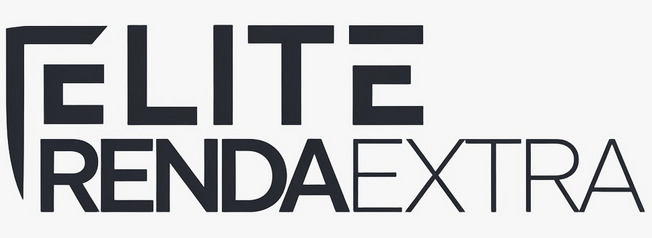Feeling overwhelmed by a stack of bills each month? If you’re juggling payments for multiple credit cards, a car loan, and maybe a line of credit, you know how stressful it can be. Keeping track of different due dates, interest rates, and minimum payments can feel like a full-time job, making it difficult to see a clear path forward.
What if you could streamline that financial chaos into a single, manageable monthly payment, potentially with a lower interest rate? This is the core idea behind using a personal loan for debt consolidation. It’s not about magic; it’s a strategic financial tool that, when used wisely, can help Canadians regain control and simplify their journey to becoming debt-free.
What Exactly is a Debt Consolidation Loan?
A debt consolidation loan is a type of personal loan taken out for a specific purpose: to pay off your other existing, higher-interest debts. Instead of making multiple payments to various creditors, you make one single monthly payment to the lender who provided the consolidation loan. The primary goal is to combine several debts into one, simplifying your finances and ideally reducing the total amount of interest you pay over time.
Think of it as refinancing your debt. You’re effectively replacing several expensive, disorganized debts with one structured loan that has a fixed interest rate and a clear end date. This predictability is a huge advantage for budgeting and long-term financial planning.
How Debt Consolidation Works in Canada
The process of consolidating your debt in Canada is straightforward. It involves a few key steps to ensure you’re making a sound financial decision. Here’s a typical breakdown of the journey:
- Assess Your Total Debt: Before you do anything, create a comprehensive list of all your unsecured debts (like credit cards and personal lines of credit). Note the outstanding balance, the interest rate (APR), and the minimum monthly payment for each one.
- Check Your Credit Score: Your credit score is a critical factor. It will influence not only your eligibility for a loan but also the interest rate you’ll be offered. A higher score generally leads to more favourable loan terms.
- Shop for a Loan: Don’t take the first offer you receive. Compare debt consolidation loans from various lenders, including traditional banks, credit unions, and reputable online lending platforms.
- Apply and Get Approved: Once you’ve chosen a lender, you’ll complete a formal application. If approved, the lender will provide the funds, sometimes directly paying off your old creditors on your behalf or depositing the lump sum into your chequing account.
- Pay Off Old Debts & Close Accounts: Use the loan funds immediately to pay off all the debts you listed. It’s often a good idea to close some of those credit card accounts to avoid the temptation of accumulating new debt.
The Pros and Cons: A Balanced View
Like any financial product, a debt consolidation loan has both significant advantages and potential drawbacks. Understanding both sides is crucial before committing. A balanced perspective helps you decide if this is the right move for your specific situation.
| Advantages | Disadvantages |
|---|---|
| Simplified Payments: One single monthly payment is easier to manage and budget for than multiple bills. | Potential for More Debt: If you don’t change your spending habits, you might run up your old credit cards again, doubling your debt. |
| Lower Interest Rate: You can often secure a lower fixed interest rate than the average of your high-interest credit cards, saving you money. | Longer Repayment Term: To get a lower monthly payment, the loan term might be extended, which could mean you pay more in total interest over the life of the loan. |
| Fixed Repayment Schedule: You’ll have a clear timeline for when you will be debt-free, which can be highly motivating. | Requires Strong Discipline: This tool only works if you commit to a budget and stop using credit irresponsibly. |
| Potential Credit Score Boost: Consistently making on-time payments on your new loan can positively impact your credit score over time. | Upfront Fees: Some loans may come with origination fees or other charges that increase the total cost. |
Is a Personal Loan for Debt Consolidation Right for You?
The answer to this question depends entirely on your individual financial health and habits. It’s a powerful tool, but it’s not a universal solution for everyone struggling with debt.
Key Factors to Consider
Your Credit Score: Lenders in Canada see a strong credit score as a sign of a reliable borrower. If your score is good to excellent, you’re likely to qualify for a loan with a competitive interest rate that makes consolidation worthwhile. If you have a lower score, you might still qualify, but the rates could be higher. Exploring options for bad credit debt consolidation in Canada with non-profit credit counsellors can provide alternative paths.
The Math: Does consolidation actually save you money? Calculate the total interest you’re currently paying on your debts and compare it to the interest you would pay with a new consolidation loan. If the new loan doesn’t offer a significantly lower rate, the benefits might be minimal.
Your Financial Discipline: This is the most important factor. A debt consolidation loan organizes your debt; it doesn’t eliminate it. If you are not committed to changing the spending habits that led to the debt in the first place, you risk ending up in a worse financial position. You must be ready to stick to a budget and avoid accumulating new high-interest debt.
Finding the Best Debt Consolidation Loan in Canada
When you’re ready to explore your options, it’s wise to shop around. Different lenders cater to different types of borrowers and offer varying terms.
Where to Look
- Major Banks: Institutions like RBC, BMO, or CIBC are a common starting point and may offer preferential rates to existing customers.
- Credit Unions: Local credit unions often provide more personalized service and can sometimes offer more competitive rates than the big banks.
- Online Lenders: A growing number of fintech companies specialize in personal loans online, often featuring a quick and easy application process.
When comparing offers, look beyond the interest rate. Consider the Annual Percentage Rate (APR), which includes fees, to understand the true cost. Also, review the loan term and ensure the monthly payment fits comfortably within your budget. A strong credit score will be your biggest advantage in securing the best possible terms.
Conclusion: Taking Control of Your Financial Future
A debt consolidation loan can be an incredibly smart use of a personal loan for many Canadians. It transforms a chaotic mess of bills into a single, structured payment, providing a clear and manageable path toward financial freedom. It simplifies your life and can save you a substantial amount of money in interest.
However, its success hinges on your commitment to financial discipline. The loan is the tool, but your budget and responsible spending habits are the foundation for long-term success. By carefully weighing the pros and cons and choosing the right product, you can take a decisive step toward a more secure financial future. For a comprehensive overview, the government offers excellent, unbiased information on debt consolidation loans Canada to help you make an informed choice.

